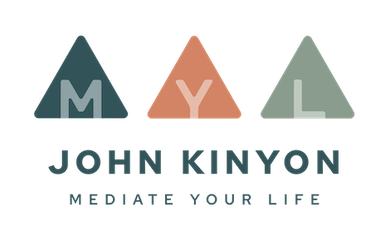Radical Understanding in a Post-Truth World
The Coronavirus pandemic is bringing to light aspects of society that were already increasingly showing signs of dysfunction and unhealth but now are more visible. One of these is how we as a society relate to truth. Through the marvel of the internet we have access to virtually unlimited amounts of information and opinions presented from a myriad of sources. There are those of us who believe the pandemic is a hoax being used to deceive, manipulate, and subjugate the public, and those who distrust government, mainstream media, and health experts. There are those of us who trust and believe in directives to “shelter in place” and physically distance, and others of us who do not. Across the political spectrum “fake news” has become a common refrain to disregard and deny information that differs from what and who we already believe.
At a deeper level, some believe the increasing flames of polarization, fragmentation, anger, conflict and mistrust between groups in society is being intentionally stoked and fanned by powerful actors behind the scenes. What is the real truth on one side is propaganda and misinformation on the other. More fundamentally, some information points people toward questioning and disbelieving science itself and basic “facts” from the scientific community, such as an understanding of ecology, biology and viruses, and cosmology (e.g. the earth being round and revolving around the sun).
It seems we really have entered a “post-truth” world. I have personal experience with this. Family members of mine believe things about the world that are deeply disturbing to me. It’s as if we live in different realities. It has been a painful emotional struggle for me, and for them. If you have had conversations, or arguments, with people who hold such differing beliefs from you, you have probably experienced that the harder you tried to get the person to see the obvious truth to you the more futile, frustrating, and painful for both of you it became.
However nonjudgmental you may think yourself to be (as I tend to believe), if you are like me there is a level at which judgment rears up, when our most sacred and cherished, deeply-held beliefs and values about ourselves, the world, and reality are challenged in some way. It then seems to become primal, survival-oriented. A tremendous impulse erupts to fight back or move away from what seems so wrong, deluded, unfair, unjust and misguided, that perhaps violates a core sense of ethics, morality and identity, or safety and security. But is there another way to respond when there is not agreement with what we hold and believe so deeply and passionately?
From the chaos and conflict of swirling oppositional beliefs in our own personal lives to the myriad of beliefs about the potentially existential dangers of pandemics, climate change, damage to the environment, and the other massive challenges that humanity as a whole faces, what are we to do if we cannot agree on even the most basic information and knowledge?
Out of some despair on my part, I surrendered to accepting this post-truth world. I let go resisting it and thinking it should or must be otherwise. With this acceptance came an idea for a deeper application of a core aspect of my work – elements of empathy for speaking and listening in conversation. In the realm of the “inter-subjective,” the relationship and communication between each other’s individual subjective experiences, is it possible and actually better for us to let go of seeking agreement about our beliefs of what’s true? It is of course so core in us to want and seek agreement, and feel uncomfortable or disturbed when it’s not there, but perhaps now in this post-truth world it is more evolutionarily adaptive to let go of this strategy and embrace a radical kind of hearing and understanding of each other’s perceptions, thoughts, and feelings whatever they may be.
Can we focus instead on trying to empathically receive and understand the other with even those most difficult to relate to beliefs, while at the same time knowing we can develop the strength to stand firmly, courageously, and compassionately in our own inner sense of truth? In those difficult absence-of-agreement moments, can I remind myself that I don’t need agreement, I need understanding? From empathic understanding we can move to focusing on shared, universal human needs between us (where there is no conflict or disagreement) underlying our perceptions, thoughts, and feelings; and then we can see if there are ways we can agree on to meet those needs. And sometimes, in that profound embrace and surrender to what is and our shared humanity, the miraculous occurs, a change, a growth and expansion of belief within the other or ourselves or in both of us.
